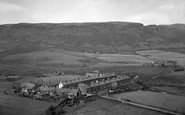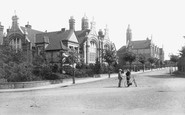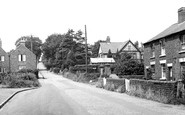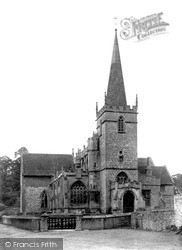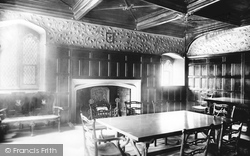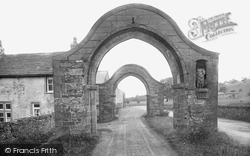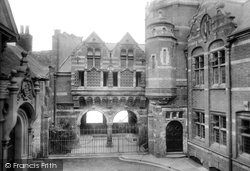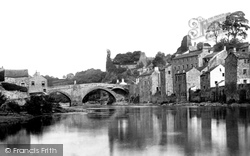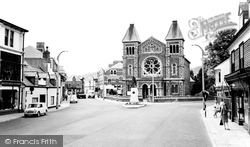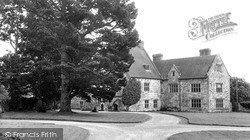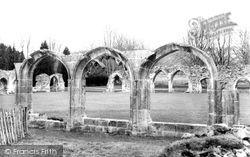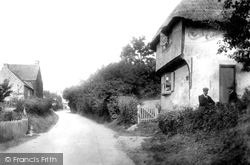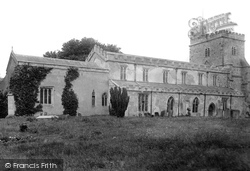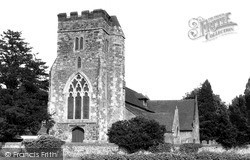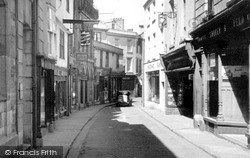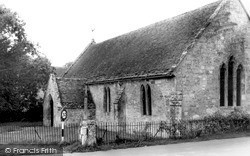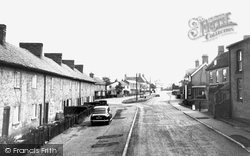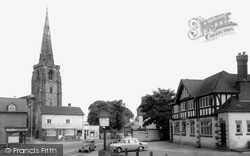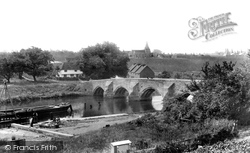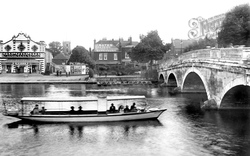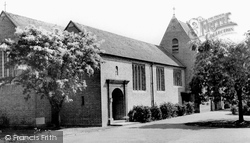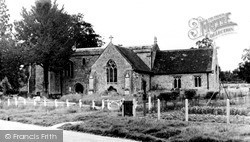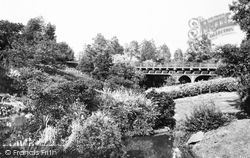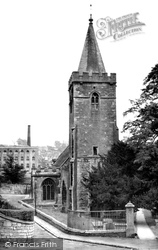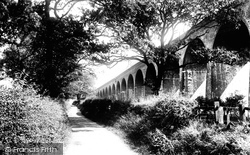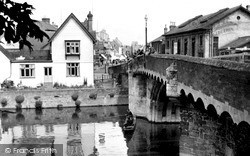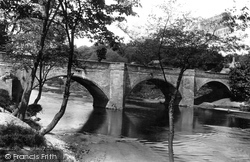Places
Sorry, no places were found that related to your search.
Photos
5 photos found. Showing results 521 to 5.
Maps
83 maps found.
Books
Sorry, no books were found that related to your search.
Memories
1,127 memories found. Showing results 261 to 270.
Family And Friends 1942 To 1961
I was born Cramlington 1942, my sister 1940. l have some happy memories of Blyth, lived with mam and dad and sister Betty in Cowpen Row. Dad was in the army so did not see much of him then, when he came ...Read more
A memory of Blyth in 1964 by
Family Connection
I try to visit Cwm Penmachno every June, sometimes my visit is a little late. My Grandad Hugh, was born in Beniarth (spelling?). I know his father (William Humphrey Evans) worked on Bertie’s farm and as far as I’m aware, my ...Read more
A memory of Cwm Penmachno by
Family History
Most of my family were born in East and West Mersea, my great-grandfather Robert Percy Woods, born 1890, born in East Mersea and was a farmer ,my great-grandmother Emma French born 1891 West Mersea, her parents were also ...Read more
A memory of East Mersea by
Family Roots
I have no memories of Barnet myself but I have recently learned since my dad passed away that my grandad came from Barnet and was born there by all accounts. His name was William George Wanstall, born on the 22nd January 1907, his ...Read more
A memory of Barnet in 1900 by
Family Visits
I have many memories of visiting my Grandparents, George and Liza Ireland, who lived on the end of Major's Terrace, (I think it was called then) next door to the Crown and Anchor (now the Pottery). A particular fond memory is of ...Read more
A memory of Mosterton in 1949 by
Famous Arch
As a child, during school holidays I would stay with my Grand-parents in Newton Abbot and often travel to Torquay on the smart dark red number 12 Devon General bus. On the journey I would look out for the tunnel at Kingskerswell near ...Read more
A memory of Kingskerswell by
Fantastic Township
I have very fond memories of Coldbackie. It’s one of those fantastic undiscovered gems in Sutherland. My grandparents bought a croft there in the 1950s and I spent much of my childhood playing at the beach, in the woods, or ...Read more
A memory of Coldbackie in 1990 by
Farfields School
I suspect either caption "Basingstoke Boarding School" or "Fairfields School" is correct, depending on your time period. I attended this school in the 1960s & 70s when it was aan ordinary (non-boarding) Infants & Junior ...Read more
A memory of Basingstoke in 1970 by
Farm At White Hill
My father Jenkin Evans and mother Valerie Evans lived at Potters Cross Farm, White Hill, Kinver from just before the Second World War. This is the farmhouse which you can see which still exists to this day. They raised four ...Read more
A memory of Kinver by
Farming From Horses To Electronics
My grandfather G. A. Smith took the tenancy of Springs Farm on Edingley Moor in 1931, when I was six months old. A builder by trade, and a sergeant in the Sherwood Rangers Yeomanry during the First World War, he ...Read more
A memory of Edingley in 1930 by
Captions
1,233 captions found. Showing results 625 to 648.
Its arches to north, south and east are very tall too, and of Decorated style.
Today, the college is still a vibrant place of learning, and open to a much wider range of pupils than Humphrey Chetham ever dreamed of.
These arches can be seen when approaching Sawley (or 'Sally') Abbey. Built in about 1890, one of them had to be removed years later because it obstructed the highway.
The shot is seawards (centre), through the arches, from the Guildhall (left).
The Gothic-arched County Bridge straddles what was the old border between Yorkshire and the Palatinate of Durham.
Behind the mini-van on the left, the Butchers Arms had replaced a much older half- timbered building damaged extensively by fire in 1939.
The priory was dissolved by Henry VIII in 1537 and the church was demolished, but much of the priory was incorporated in the Tudor mansion we see in this view from near the gatehouse.
These ruined windows and arches are the remains of the cloisters. Situated in the north-west Cotswolds, Hailes Abbey was founded in 1246.
The 19th-century squire, Sir Edward Cholmeley Dering, had every window in the village altered to have rounded lights under an exterior arch in the belief that this would bring good luck.
Inside, the nave south arcade is partly late 12th-century and of high quality, and so are the rest of the nave arches, which are early 14th-century.
Internally, the church shows its Norman origins with two-bay arcades north and south and unmoulded arches separated by pieces of wall.
Opposite the arches and pillars of what used to be Hayman's Pianoforte Warehouse are just visible; the premises are now a gun shop.
The tiny nave and chancel have no arch; the plaster ceiling probably dates to the early 19th century. A bell from the time of the church's completion is kept on a window-sill.
right) is now a private house; the next building has been demolished, but Chequers House, in the foreground, has been restored, and today sports fine wrought iron railings and a splendid iron gate arch
The church is built of a grey sandstone; the scraping of the interior has left it somewhat dull, but relieved by the royal arms dated 1684 above the chancel arch.
This peaceful scene shows the 14th-century five-arched ragstone bridge, which is considered by some to be the finest in the south-east.
This view looks across the river to the south bank, now a much changed view. The Picturedome at this time was showing 'Madame Peacock' daily at 3, 7 and 9 o'clock.
Particularly pleasant is the Tuscan-columned interior, with its round arches under a wagon roof.
The nave is mainly 12th-century, while the 14th-century south chapel has an external arched tomb recess under its three-light window (centre).
The cast iron rustic bridge, built in 1870, has always been a much-photographed spot.
There are also memorials to Anne Long, 1601, in brass, and to Charles Steward, 1701: a standing figure (by Nost) is in front of a blank arch, with mourning putti left and right.
Here we have a grand view of the railway arches heading out of Whalley.
Apart from the need for something stronger, it was believed that the small arches restricted the flow of the Ouse and led to the formation of ice during the winter.
This sturdy bridge over the River Wharfe, linking Boston Spa with Thorp Arch, was built in 1770. Along the banks to the east is the old Spa Baths, now converted to housing.
Places (0)
Photos (5)
Memories (1127)
Books (0)
Maps (83)

